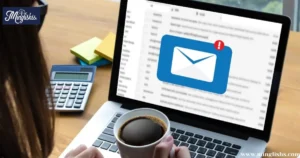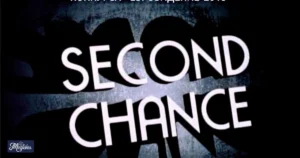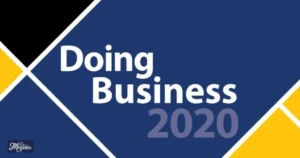“There are countless ways to express that you’ve never met someone, and finding the right phrase is key in communication.”
In daily conversations, it’s common to come across moments when you have to say, “We have not met.” Whether it’s in professional settings, casual encounters, or virtual meetings, expressing this idea clearly and politely is essential. While “We have not met” is perfectly fine, there are many other ways to convey the same message that can help build rapport and avoid awkwardness.
Are you tired of saying the same thing over and over? It’s time to learn different phrases that can make your conversations more engaging and polished. Whether you are attending a business conference, connecting with someone new online, or speaking to someone in person, these alternative expressions will help you convey the right tone and leave a good impression.
This blog will cover 35 different ways to say “We have not met,” with practical examples, subject explanations, and additional tips to help you understand when and how to use each phrase. These alternatives are useful for both formal and informal situations, so you’ll be ready no matter where your next conversation takes place.
35 Ways to Say “We Have Not Met”
1. “I don’t believe we’ve had the pleasure.”
Scenario:
Imagine you’re at a networking event, and you approach someone you haven’t met before. Instead of using a standard introduction, you say, “I don’t believe we’ve had the pleasure.”
Subject Explanation:
This phrase sounds friendly and welcoming while hinting that you’re excited to make a new connection. It works well in both professional and social situations, showing politeness and interest.
Additional Tip:
Use this expression when you want to be formal but not too stiff. It’s a good icebreaker in environments where you’re looking to establish positive relationships.
2. “We haven’t had the chance to meet yet.”

Scenario:
You’re introduced to someone at a party, and instead of the typical greeting, you say, “We haven’t had the chance to meet yet.”
Subject Explanation:
This phrase is conversational and suggests that you’ve been waiting to meet this person. It implies that you’re now seizing the opportunity, creating a friendly, approachable tone.
Additional Tip:
This is great for casual settings or when you want to create a sense of missed opportunity that is now being fulfilled.
3. “I don’t think we’ve crossed paths before.”
Scenario:
In an office meeting, you’re introduced to a colleague for the first time. You smile and say, “I don’t think we’ve crossed paths before.”
Subject Explanation:
This phrase is informal yet professional. It suggests that it’s a coincidence you haven’t met yet and is perfect for professional introductions.
Additional Tip:
You can use this in both formal meetings and casual events where you want to express a light-hearted introduction.
4. “We haven’t been introduced yet.”
Scenario:
At a conference, you sit next to someone new and say, “We haven’t been introduced yet.”
Subject Explanation:
This expression indicates that meeting someone should have happened earlier. It sets a neutral tone and works well in formal settings.
Additional Tip:
Use this phrase to keep things formal but polite, especially in corporate settings or more official environments.
5. “I don’t believe we’ve met before.”
Scenario:
You join a virtual meeting and meet a colleague for the first time. You greet them by saying, “I don’t believe we’ve met before.”
Subject Explanation:
This is a polite and straightforward way to say that you haven’t met someone yet. It’s neutral, simple, and perfect for professional settings.
Additional Tip:
You can rely on this phrase in nearly any situation, whether it’s in person or online.
6. “It seems we haven’t met.”
Scenario:
While attending a wedding, you encounter someone new and say, “It seems we haven’t met.”
Subject Explanation:
This phrase adds a touch of formality, and it works well when you want to stay neutral but polite. It’s simple and doesn’t feel forced.
Additional Tip:
This works well for formal occasions where politeness is key, such as at weddings or official events.
7. “I don’t think we’ve been introduced.”
Scenario:
At a work function, you encounter someone new and say, “I don’t think we’ve been introduced.”
Subject Explanation:
This phrase is polite and formal. It implies that the meeting should have happened earlier and is now being rectified, which can make the introduction smoother.
Additional Tip:
Use this when you need to be polite and professional. It’s ideal for corporate environments.
8. “I’m not sure we’ve had the opportunity to meet.”

Scenario:
You’re at a conference, and you meet someone for the first time. You say, “I’m not sure we’ve had the opportunity to meet.”
Subject Explanation:
This phrase sounds neutral and professional, making it appropriate for formal environments. It also conveys that you’re open to the introduction.
Additional Tip:
This is excellent for formal and semi-formal situations, particularly in professional settings.
9. “We’ve never had the pleasure of meeting.”
Scenario:
You’re at a business luncheon and introduce yourself to a new contact by saying, “We’ve never had the pleasure of meeting.”
Subject Explanation:
This phrase emphasizes the pleasure of the meeting, showing politeness and enthusiasm. It’s great for networking events and social gatherings.
Additional Tip:
Use this when you want to sound both formal and friendly. It works well in events where networking is important.
10. “We haven’t had the opportunity to meet face-to-face.”
Scenario:
In a video conference, you meet someone you’ve only communicated with via email. You say, “We haven’t had the opportunity to meet face-to-face.”
Subject Explanation:
This phrase is ideal when meeting someone in person for the first time after virtual communication. It bridges the gap between online and physical introductions.
Additional Tip:
This is perfect for virtual-to-physical introductions. Use it in hybrid work environments or video calls.
Other Ways to Say “I Was Wondering”
11. “I don’t believe we’ve been formally introduced.”
Scenario:
In a professional environment, you say to a colleague, “I don’t believe we’ve been formally introduced.”
Subject Explanation:
This phrase sets a formal tone while acknowledging that you should have met earlier. It’s excellent for workplace or networking environments.
Additional Tip:
Use this when you want to be professional, especially at formal events or office introductions.
12. “We haven’t had the occasion to meet.”
Scenario:
At a conference, you approach someone new and say, “We haven’t had the occasion to meet.”
Subject Explanation:
This phrase is neutral, professional, and polite. It suits formal environments and indicates that you’re making the most of the opportunity to introduce yourself.
Additional Tip:
It’s best used in corporate or professional networking settings.
13. “We haven’t had the pleasure of an introduction.”
Scenario:
At a work gathering, you meet someone new and say, “We haven’t had the pleasure of an introduction.”
Subject Explanation:
This phrase emphasizes the enjoyment of meeting someone new, making it friendly and inviting. It works well in both professional and casual settings.
Additional Tip:
You can use this in both formal and informal environments where you want to be polite but approachable.
14. “I don’t think we’ve met in person yet.”
Scenario:
During a hybrid event, you meet someone face-to-face for the first time and say, “I don’t think we’ve met in person yet.”
Subject Explanation:
This phrase clarifies that while you may have interacted online, this is your first in-person meeting. It works well in modern work environments.
Additional Tip:
This is perfect for virtual-to-physical transitions, especially when you’ve already had online interactions.
15. “I don’t believe we’ve been acquainted.”
Scenario:
You’re at a formal dinner, and you meet someone new, so you say, “I don’t believe we’ve been acquainted.”
Subject Explanation:
This phrase sounds formal and slightly old-fashioned, making it ideal for high-level or traditional events where formality is key.
Additional Tip:
This phrase works well in formal or traditional settings, such as formal dinners or business events.
16. “I don’t think we’ve had the chance to connect.”
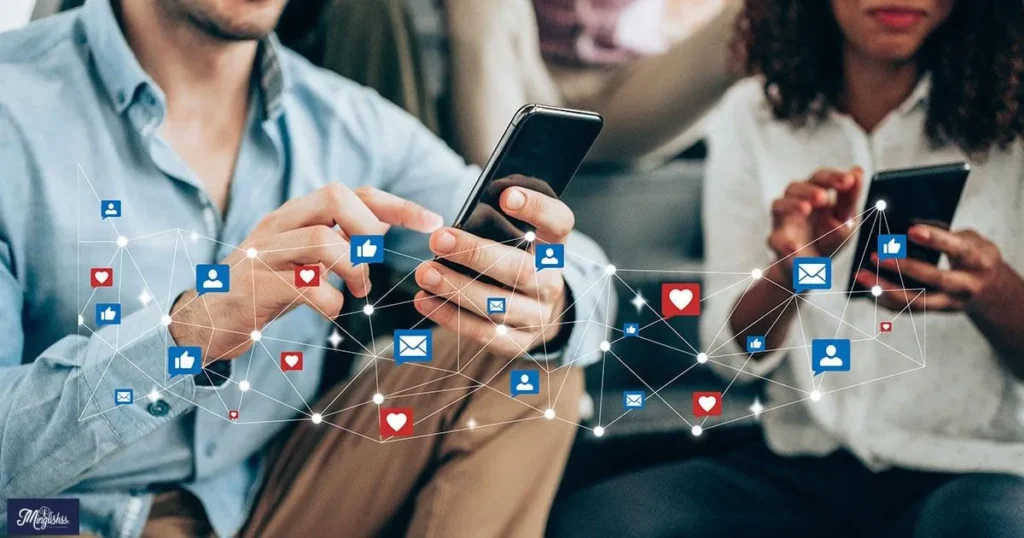
Scenario:
At a workshop, you approach someone who seems familiar. You say, “I don’t think we’ve had the chance to connect.”
Subject Explanation:
This phrase is friendly and approachable, suggesting a missed opportunity that you’re eager to rectify. It works well in both casual and formal contexts, making it versatile.
Additional Tip:
Use this expression in relaxed environments or when you want to convey enthusiasm for getting to know someone better.
17. “I’m not sure we’ve had an introduction yet.”
Scenario:
At a business meeting, you notice someone new and say, “I’m not sure we’ve had an introduction yet.”
Subject Explanation:
This phrase is polite and slightly more formal, ideal for professional environments. It shows awareness and a desire to break the ice.
Additional Tip:
This works well in meetings where formality is appreciated but still allows for warmth in your greeting.
18. “We seem to be meeting for the first time.”
Scenario:
At a local event, you smile at someone and say, “We seem to be meeting for the first time.”
Subject Explanation:
This phrase is light-hearted and casual, making it perfect for informal gatherings. It conveys that you’re excited about the new interaction.
Additional Tip:
Great for social events or community gatherings where a friendly tone is welcomed.
19. “I’m new to this group, so we haven’t met.”
Scenario:
At a club meeting, you introduce yourself by saying, “I’m new to this group, so we haven’t met.”
Subject Explanation:
This phrase not only conveys that you haven’t met but also shares a bit of your situation, creating a bond with others in the group. It’s particularly effective in group settings.
Additional Tip:
Use this approach to connect with others who may also be new, fostering a sense of camaraderie.
20. “I don’t believe we’ve had the pleasure of an introduction.”
Scenario:
At a charity event, you approach a guest and say, “I don’t believe we’ve had the pleasure of an introduction.”
Subject Explanation:
This phrase is friendly yet formal, suitable for charity or networking events where creating a positive impression is crucial.
Additional Tip:
This is a great way to express that you value the opportunity to connect with someone, enhancing your networking efforts.
21. “I think this is our first meeting.”
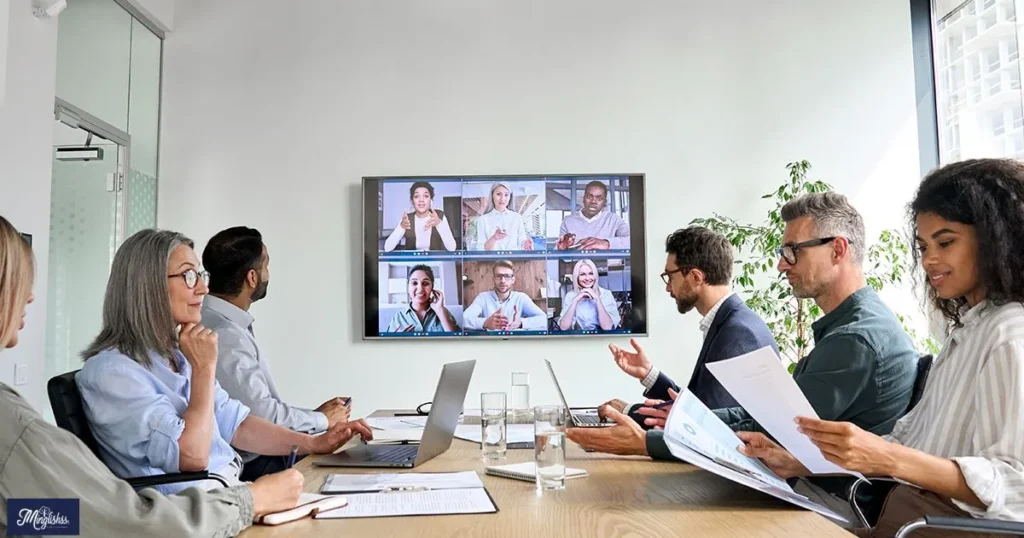
Scenario:
At a product launch, you meet someone from another department and say, “I think this is our first meeting.”
Subject Explanation:
This phrase sounds casual and indicates that you’re aware of your previous interactions, setting a relaxed tone for your conversation.
Additional Tip:
Use this when you want to keep the introduction light-hearted and friendly, especially in informal corporate settings.
22. “We haven’t had the chance to meet yet, have we?”
Scenario:
In a casual conversation at a coffee shop, you ask someone, “We haven’t had the chance to meet yet, have we?”
Subject Explanation:
This phrase is engaging and invites the other person to confirm or elaborate, making the conversation more interactive. It’s perfect for casual encounters.
Additional Tip:
This works well in informal settings where you want to create a friendly rapport quickly.
23. “I’m glad we’re finally meeting!”
Scenario:
At a networking function, you approach a colleague you’ve communicated with online and say, “I’m glad we’re finally meeting!”
Subject Explanation:
This phrase conveys excitement and positivity, making it a warm way to greet someone. It also hints at the anticipation of building a connection.
Additional Tip:
Use this in situations where you’ve had previous interactions through email or calls, making the meeting feel more significant.
24. “This is our first encounter.”
Scenario:
During a formal reception, you greet a new acquaintance by saying, “This is our first encounter.”
Subject Explanation:
This phrase is formal and direct, suitable for events where maintaining a professional demeanor is essential. It implies respect for the meeting.
Additional Tip:
Ideal for formal settings where a straightforward approach is valued.
25. “It appears we’re meeting for the first time.”
Scenario:
At a business seminar, you introduce yourself to a new contact by saying, “It appears we’re meeting for the first time.”
Subject Explanation:
This phrase is polite and slightly formal, perfect for professional environments. It sets a respectful tone for introductions.
Additional Tip:
Best used in corporate settings where formality is preferred, helping you establish credibility.
26. “I believe this is our first meeting.”
Scenario:
At a sales conference, you greet a potential client with, “I believe this is our first meeting.”
Subject Explanation:
This expression conveys professionalism and indicates that you recognize the importance of the encounter. It’s direct and to the point.
Additional Tip:
Use this phrase in business contexts to set a formal tone while still being approachable.
27. “We haven’t had the chance to shake hands.”
Scenario:
At a trade show, you meet someone new and say, “We haven’t had the chance to shake hands.”
Subject Explanation:
This phrase adds a tactile element to the introduction, making it feel more personal and friendly. It’s great for in-person meetings.
Additional Tip:
Use this in environments where physical greetings are common, enhancing the personal touch of your introduction.
28. “I haven’t had the pleasure of meeting you yet.”
Scenario:
In a social setting, you meet someone and say, “I haven’t had the pleasure of meeting you yet.”
Subject Explanation:
This expression conveys eagerness to get to know the other person, making it friendly and welcoming. It’s appropriate for various social contexts.
Additional Tip:
Ideal for social events or parties where building connections is a priority.
29. “This is our first chance to meet.”
Scenario:
During a community event, you approach a participant and say, “This is our first chance to meet.”
Subject Explanation:
This phrase is casual and emphasizes the opportunity of the meeting. It shows that you value the chance to connect.
Additional Tip:
Use this in relaxed settings where a casual tone is welcomed, helping to ease any tension.
30. “I think we’re just meeting for the first time.”
Scenario:
At a casual meetup, you introduce yourself and say, “I think we’re just meeting for the first time.”
Subject Explanation:
This expression is light and casual, making it perfect for informal gatherings. It helps break the ice in a friendly manner.
Additional Tip:
Use this phrase when you want to keep the mood light and create a welcoming atmosphere.
31. “I don’t believe we’ve shared an introduction yet.”
Scenario:
In a workshop setting, you greet someone and say, “I don’t believe we’ve shared an introduction yet.”
Subject Explanation:
This phrase adds a slight touch of formality while still being approachable. It acknowledges the lack of prior meeting in a polite way.
Additional Tip:
Use this in professional workshops or educational settings to maintain a respectful tone.
32. “I haven’t yet had the pleasure of meeting you.”
Scenario:
At a gala, you meet a fellow attendee and say, “I haven’t yet had the pleasure of meeting you.”
Subject Explanation:
This phrase is gracious and highlights your enthusiasm about the meeting. It’s well-suited for formal or semi-formal events.
Additional Tip:
Use this in events where maintaining a polite and formal tone is important.
33. “We haven’t crossed paths until now.”
Scenario:
At a local networking event, you introduce yourself by saying, “We haven’t crossed paths until now.”
Subject Explanation:
This expression is friendly and light-hearted, suggesting that while you may have been in similar circles, you have not formally met. It encourages further conversation.
Additional Tip:
Perfect for casual events where you want to create an approachable atmosphere.
34. “I’m looking forward to getting to know you.”
Scenario:
During a team-building exercise, you greet a new team member by saying, “I’m looking forward to getting to know you.”
Subject Explanation:
This phrase conveys excitement and eagerness, setting a positive tone for future interactions. It emphasizes your interest in building a connection.
Additional Tip:
Great for team environments where collaboration is key, helping to foster relationships.
35. “It seems this is our first meeting.”
Scenario:
At a business mixer, you introduce yourself with, “It seems this is our first meeting.”
Subject Explanation:
This phrase is polite and suggests that you’re aware of the situation. It shows you’re engaged and interested in connecting.
Additional Tip:
Use this to maintain a professional demeanor while keeping the tone friendly.
Pros and Cons of Alternative Phrases
Pros:
- Diversity in Communication: Using different phrases keeps your conversations fresh and engaging.
- Tone Flexibility: These phrases offer flexibility depending on the formality of the setting.
- Politeness and Professionalism: Some alternatives can sound more polite or formal than “We have not met.”
Cons:
- Over-Formality: In casual settings, some phrases may feel overly formal and distant.
- Confusion: Certain phrases may be less familiar, leading to misunderstandings in casual conversations.
Conclusion
By incorporating these 35 alternative phrases into your vocabulary, you can enrich your interactions and make your introductions more engaging. Whether you’re in a formal setting, a casual gathering, or a virtual meeting, having a diverse range of expressions at your disposal will help you communicate more effectively and leave a positive impression.
Choose phrases that fit the context and your personal style to ensure your introductions resonate with others. In a world where networking and building connections are increasingly important, mastering these alternatives can significantly enhance your communication skills. Happy networking!
Answers to key questions
1. What is the best phrase for casual settings?
Phrases like “It seems we haven’t met” or “I think we’re just meeting for the first time” are perfect for casual settings.
2. How do I choose the right phrase?
Consider the formality of the event and your relationship with the person to determine which phrase is most appropriate.
3. Can I use these phrases in emails?
Yes, many of these phrases can be adapted for email introductions, making your written communication feel more personal.
4. How do I make my introductions stand out?
Combine these phrases with a warm smile, eye contact, and genuine interest in the other person to make your introductions memorable.
5. Is it okay to be casual in a professional setting?
Yes, being casual can work well in professional settings, especially when you gauge the atmosphere and adapt your approach accordingly.

Hi, I’m Ethan Matthews: I make English easy with my clear and simple teaching style. I love helping learners feel confident in every lesson.




